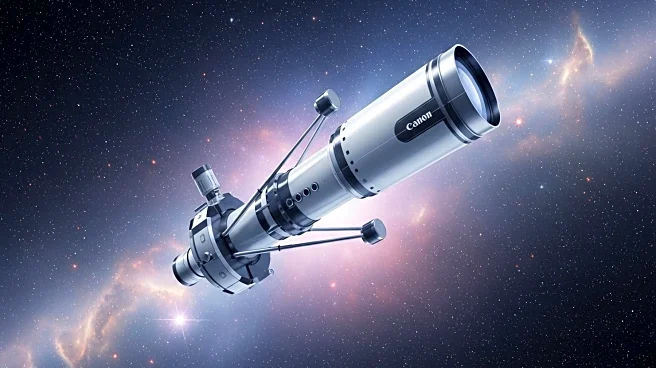What is the story about?
What's Happening?
Bill Nye, CEO of the Planetary Society, is advocating against the Trump administration's proposed budget cuts to NASA, which would reduce the agency's funding by approximately 24% for the 2026 fiscal year. The proposed cuts would decrease NASA's budget from $24.8 billion to $18.8 billion, significantly impacting the Science Mission Directorate, which includes planetary science, Earth science, and astrophysics research. Nye, along with other space advocates and legislators, held a press conference on Capitol Hill to emphasize the importance of maintaining NASA's funding for ongoing and future space exploration missions. The proposed budget cuts are seen as a threat to several key missions, including the Mars Sample Return and the Juno mission, and could hinder the U.S.'s competitive edge in space exploration, particularly against China.
Why It's Important?
The proposed budget cuts to NASA's Science Mission Directorate could have significant implications for the U.S.'s position in global space exploration. By reducing funding for critical science missions, the U.S. risks falling behind other nations, such as China, which is rapidly advancing its space capabilities. The cuts could lead to the termination of ongoing missions and delay future projects, impacting scientific research and technological advancements. Maintaining robust funding for NASA is crucial for the U.S. to continue its leadership in space exploration and to foster innovation in science and technology. The potential loss of these missions could also affect educational and research opportunities in the fields of astronomy and astrophysics.
What's Next?
Both the Senate and House have bills that reject the proposed cuts to NASA's budget, but these need to be signed into law to ensure continued funding. Advocates, including Bill Nye and various scientific organizations, are urging Congress to act swiftly to protect NASA's budget. The outcome of these legislative efforts will determine the future of NASA's science missions and the U.S.'s role in space exploration. The decision will also influence the country's ability to compete with other nations in advancing space technology and exploration.
Beyond the Headlines
The proposed budget cuts to NASA not only threaten scientific missions but also raise concerns about the U.S.'s commitment to addressing climate change. The budget proposal includes the elimination of climate-focused projects, which could undermine efforts to understand and mitigate environmental challenges. Additionally, the cuts could impact the U.S.'s ability to inspire and educate future generations in STEM fields, as NASA's missions often serve as a catalyst for interest in science and technology.















